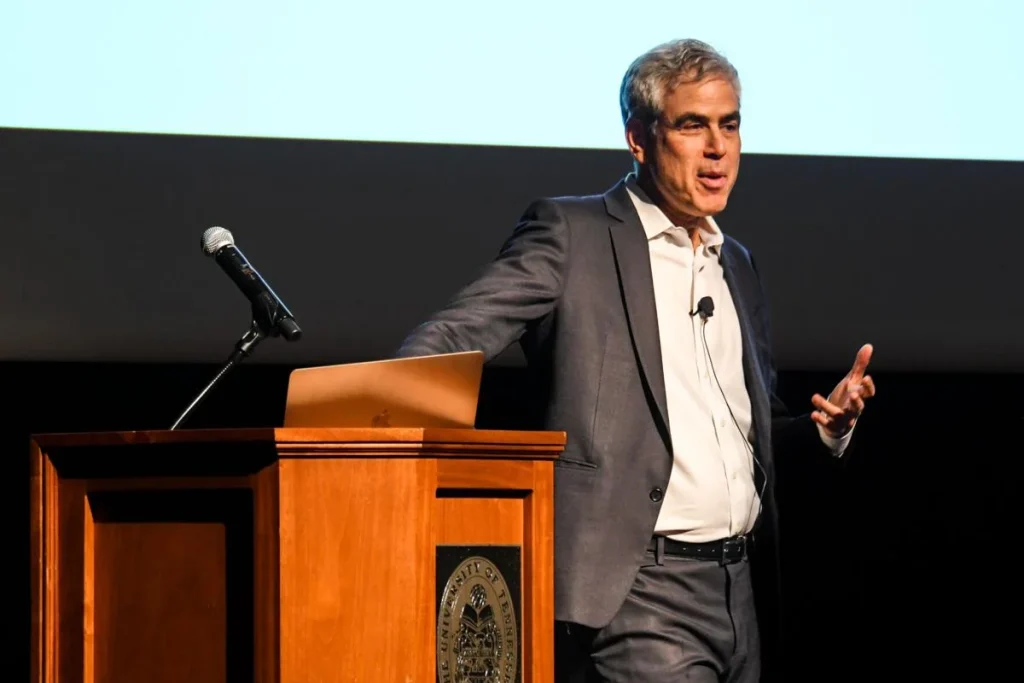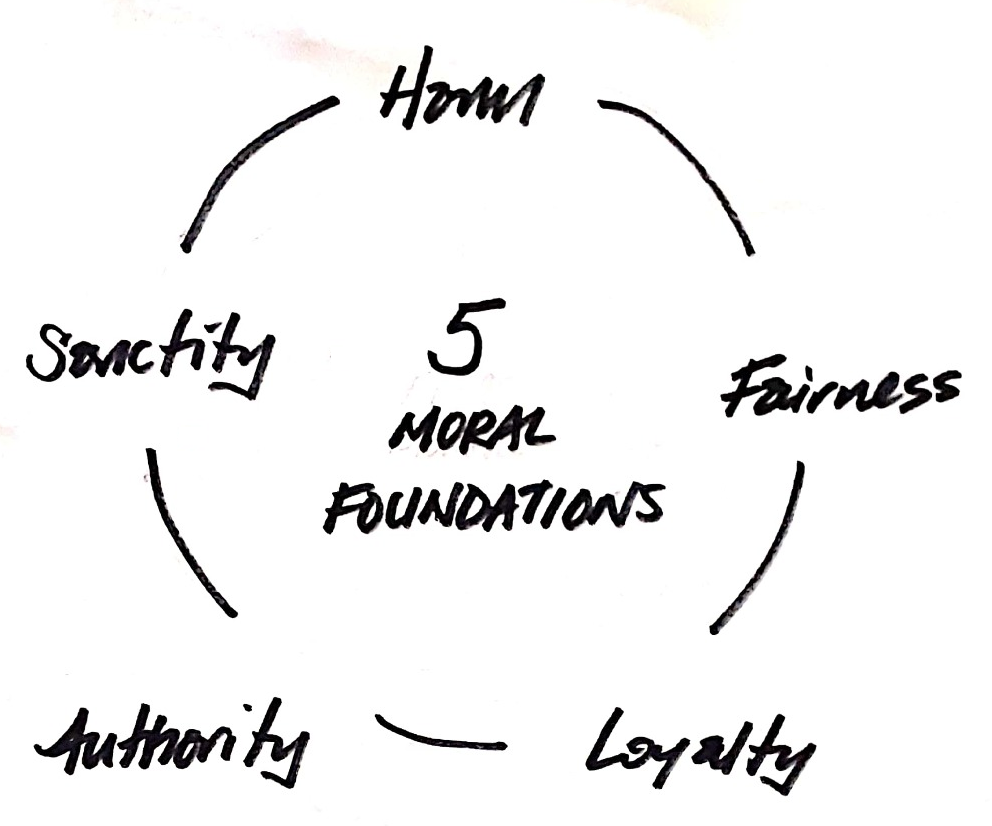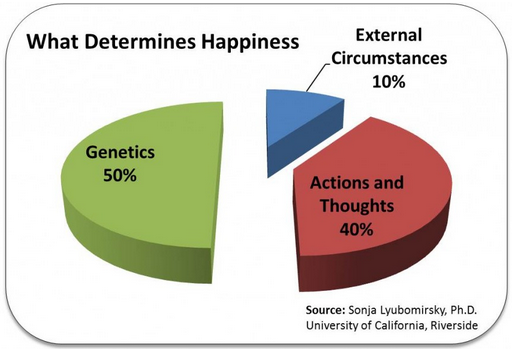Contents
Introduction
Jonathan Haidt is a renowned American social psychologist known for his research on morality, politics, and the cultural factors that shape human behavior. Haidt’s work has significantly influenced our understanding of moral psychology and the psychological foundations of political ideology. His contributions have had a profound impact on psychology, political science, and public discourse, offering valuable insights into the roots of human cooperation and conflict.

In this article, we will examine Jonathan Haidt’s influential research on morality, politics, and cultural factors, exploring his insights into moral psychology, political ideology, and the roots of human cooperation and conflict.
Early Life and Education
Jonathan David Haidt was born on October 19, 1963, in New York City. Growing up in a culturally diverse environment, Haidt developed an early interest in understanding human behavior and the factors that influence moral judgment. His parents, both professionals in education and psychology, encouraged his intellectual curiosity and fostered a love for learning. This nurturing environment set the stage for his future academic pursuits.
Image Source: Jonathan Haidt, Thomas Cooley Professor of Ethical Leadership at New York University, discusses the three ideas harming higher education in the Student Union auditorium on March 31, 2022.

Haidt’s interest in psychology began during his undergraduate studies, where he was particularly fascinated by the complexities of moral reasoning and cultural influences on behavior. This fascination led him to pursue advanced studies in psychology, with a focus on moral and political psychology. His academic journey was marked by a commitment to exploring the psychological underpinnings of human morality and ideological differences.
Educational Journey
| Aspect | Details |
| Early Education | Haidt attended local schools in New York City, where he developed a strong foundation in the humanities and social sciences. |
| Yale University | Haidt earned his Bachelor of Arts degree in Philosophy in 1985. |
| University of Pennsylvania | Haidt pursued his Ph.D. in Psychology, focusing on moral development and cultural psychology, completing his dissertation under the supervision of Paul Rozin in 1992. |
| Academic Career | After completing his doctorate, Haidt held academic positions at various institutions, including the University of Virginia and New York University, where he has been a professor and a key figure in moral and political psychology. |
Timeline of Early Influences
| Aspect | Details |
| Richard Shweder | Shweder’s work on cultural psychology and moral relativism significantly influenced Haidt’s approach to understanding moral diversity. |
| Paul Rozin | Rozin’s research on cultural psychology and the psychological foundations of food and morality provided a foundation for Haidt’s investigations into moral psychology. |
| Carol Gilligan | Gilligan’s work on moral development and ethics of care inspired Haidt’s interest in the gender differences in moral reasoning. |
| Lawrence Kohlberg | Kohlberg’s stages of moral development influenced Haidt’s early work on moral reasoning and the development of his own theories on morality. |
Major Theories and Works

Moral Foundations Theory
Jonathan Haidt is best known for developing Moral Foundations Theory (MFT), which posits that there are several innate psychological foundations upon which human moral reasoning is built. According to MFT, these foundations include:
- Care/Harm: Concerns about the suffering of others, including virtues of kindness and compassion.
- Fairness/Cheating: Concerns about justice and rights, emphasizing reciprocity and equality.
- Loyalty/Betrayal: Concerns about group cohesion and loyalty to one’s group, emphasizing patriotism and self-sacrifice.
- Authority/Subversion: Concerns about social order and respect for tradition and authority.
- Sanctity/Degradation: Concerns about purity, sanctity, and the avoidance of contamination.
- Liberty/Oppression: Concerns about freedom and resistance to domination.
Image Source: NYU Professor Jonathan Haidt suggests that human beings are evolved for the capacity for these five foundational moral concepts and the strong emotions associated with them.

The Righteous Mind
In “The Righteous Mind: Why Good People Are Divided by Politics and Religion,” Jonathan Haidt investigates how moral psychology influences political and religious beliefs. Key elements include:
- Ideological Divides: Haidt explores how differing moral foundations contribute to ideological divisions and conflict. Understanding these underlying moral principles can help bridge gaps between opposing viewpoints.
- Moral Intuition: Haidt posits that our moral decisions are guided more by intuitive feelings than by logical reasoning. These gut reactions shape our beliefs and ideologies, often leading to polarized views.
- Moral Foundations Theory: The book introduces the concept of moral foundations, suggesting that different cultures and individuals prioritize various moral values, such as fairness, loyalty, and authority, which influence their political and religious beliefs.
Image Source: Illustrations by Johnny Selman

Moral Elevation
Jonathan Haidt has extensively explored the concept of moral elevation, a positive emotion experienced when witnessing acts of moral beauty or virtue. Key elements include:
- Emotional Response: Moral elevation typically involves a profound sense of awe and admiration, accompanied by positive feelings such as warmth and inspiration. It often occurs when witnessing acts of extraordinary kindness or ethical behavior.
- Motivational Impact: This emotional experience can lead to increased motivation to act morally and altruistically. People who experience moral elevation are more likely to engage in prosocial behavior and contribute to their communities.
- Physiological Reactions: Research indicates that moral elevation can trigger physiological responses, such as increased heart rate and a sense of physical lightness.
Image Source: sixtyandme.com

Social Intuitionist Model
Jonathan Haidt’s Social Intuitionist Model offers a framework for understanding moral judgment and decision-making, emphasizing the role of intuition over rational deliberation. Key elements include:
- Social Influences: The model highlights the impact of social interactions and cultural norms on moral judgments. People are influenced by the moral intuitions of those around them and often use reasoning to align their views with social groups.
- Intuitive Basis of Morality: The model posits that moral judgments are primarily driven by intuitive responses rather than rational deliberation.
- Role of Reasoning: While reasoning does play a role, it is typically used post hoc to justify intuitive judgments rather than to make initial moral decisions. This process involves crafting rational arguments to support the intuitively derived conclusions.
Image Source: evokit-notes.tumblr.com

Happiness Hypothesis
Jonathan Haidt’s The Happiness Hypothesis explores various aspects of happiness and well-being through a synthesis of ancient wisdom and modern psychological research. Key elements include:
- The Concept of the “Divided Self”: The book explores the idea that humans have different parts of their psyche that can be in conflict, such as the “rider” (rational mind) and the “elephant” (emotional mind). This metaphor illustrates how emotional responses can often overpower rational thought in determining happiness.
- The Happiness Equation: Haidt presents the idea that happiness results from a combination of genetic predispositions, life circumstances, and intentional activities. He emphasizes that while genetics and circumstances play a role, intentional activities and mindset can significantly impact one’s sense of well-being.
Image Source: wezbest.com

Psychologists Influenced by Haidt
- Paul Bloom – Bloom’s work on moral development and empathy has been influenced by Haidt’s research on moral foundations and social intuition (Bloom, 2013).
- Joshua Greene – Greene’s studies on moral judgment and the neural basis of ethical decision-making draw from Haidt’s theories on moral reasoning and intuition (Greene, 2013).
- Liane Young – Young’s research on moral cognition and the brain has been shaped by Haidt’s insights into the intuitive nature of moral judgments (Young, 2012).
- Azim Shariff – Shariff’s work on religion, morality, and cultural evolution builds on Haidt’s theories of moral foundations and the social functions of religion (Shariff, 2008).
- Jesse Graham – Graham’s research on political psychology and moral diversity has been heavily influenced by his collaborations with Haidt on moral foundations theory (Graham, 2013).
Impact on Psychology
Contributions to Related Fields
Haidt’s interdisciplinary approach has extended his influence to areas such as political science, education, and public policy. His insights into moral psychology have informed political analyses, helping to explain the psychological roots of ideological divisions and political behavior. In education, Haidt’s work has contributed to discussions on moral development, resilience, and the impact of cultural trends on student well-being. His research has also influenced public policy debates, emphasizing the importance of moral and psychological considerations in policy-making.
Legacy and Influence
- Long-Term Impact: Jonathan Haidt’s legacy endures through his lasting contributions to psychology and related fields. His pioneering work in moral psychology has laid the foundation for numerous subsequent theories and research. Haidt’s emphasis on understanding the psychological underpinnings of moral and political behavior continues to influence contemporary research and practice. His ability to communicate complex scientific ideas to both academic and public audiences has made him a key figure in promoting scientific literacy and fostering dialogue on critical social issues.
- Recognition and Honors: Haidt has received numerous accolades and recognition for his work. He is a Fellow of the American Academy of Arts and Sciences and the Association for Psychological Science. Haidt has been awarded several prestigious honors, including the Templeton Prize for Positive Psychology and the Distinguished Scientific Contribution Award from the American Psychological Association. His contributions to psychology and public discourse have been widely acknowledged and celebrated.
- Criticism and Controversies: While Jonathan Haidt has garnered significant recognition for his contributions to psychology, his work has not been without criticism. Some argue that his focus on innate moral foundations may overlook the complexity and variability of cultural and social influences on moral development. Additionally, his perspectives on political correctness and campus culture have sparked debate, with critics suggesting that his views may underplay the significance of efforts to address systemic inequalities and protect vulnerable populations. Despite these criticisms, Haidt’s rigorous scientific methods and commitment to fostering dialogue continue to inspire debate and further investigation in the fields of psychology and beyond.
Conclusion
Jonathan Haidt’s life and work have profoundly shaped the fields of psychology, particularly in the areas of moral psychology, social psychology, and political psychology. His theories on moral foundations, social intuition, and political ideology offer valuable insights into human behavior and social dynamics. By emphasizing the importance of understanding the psychological underpinnings of moral and political beliefs, Haidt has provided a comprehensive framework for addressing societal divisions and promoting social cohesion. As his legacy continues to unfold, Haidt’s contributions to psychology and public engagement will likely inspire future generations of researchers, educators, and practitioners.
Bibliography
- [1] Bloom, P. (2013). Just Babies: The Origins of Good and Evil. New York: Crown.
- [2] Graham, J., Haidt, J., & Nosek, B. A. (2013). Liberals and conservatives rely on different sets of moral foundations. Journal of Personality and Social Psychology, 96(5), 1029-1046.
- [3] Greene, J. (2013). Moral Tribes: Emotion, Reason, and the Gap Between Us and Them. New York: Penguin Press.
- [4] Haidt, J. (2006). The Happiness Hypothesis: Finding Modern Truth in Ancient Wisdom. New York: Basic Books.
- [5] Haidt, J. (2012). The Righteous Mind: Why Good People Are Divided by Politics and Religion. New York: Pantheon Books.
- [7] Haidt, J., & Layard, R. (2013). The Happiness Manifesto: How Nations and People Can Nurture Well-Being. New York: Penguin.
- [8] Shariff, A. F., & Haidt, J. (2008). The origins and evolution of religious prosociality. Science, 322(5898), 58-62.
- [9] Young, L., & Saxe, R. (2011). The neural basis of belief encoding and integration in moral judgment. NeuroImage, 57(3), 1100-1110.






